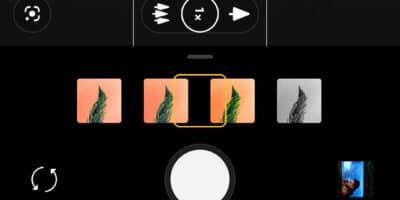Google does a lot of things well, be it from its services or products. However, Messaging is not one of the areas where Google has found the right answer, which can be evidently seen on Google’s RCS development. Google’s rollout of RCS chat to Android devices has been slow, partly you can blame on carriers. progress
ALSO READ: Google Stadia: What? How? And When? [Games Included]
Making Android Messages a full RCS client was a bright step towards future, as it can provide much of iMessage or WhatsApp like experience to you chat, but was totally relied on carrier support. And you know how difficult it can be to get a nod from major carriers. Before we go ahead, let’s start with the basic.
What Is RCS?
RCS stands for Rich Communication Services. How it is different from the normal text messages? Well, the best way to describe it is to say it can make regular texting more like WhatsApp or Telegram. It runs on a set rule of GSM Association and the association doesn’t allow any company to use these rules and standards, it is up to the carriers and the companies that make devices or the software that runs on them.
![RCS Messaging 2 - Google's RCS Messaging Works Without Carrier In The Middle, Will That Help? [Explained] RCS Messaging](https://techdipper.com/wp-content/uploads/2019/06/RCS-Messaging-2.jpg)
This time around, GSMA is also pushing for a change both because it’s a better experience and because SMS is in dire need of a replacement. The service wasn’t designed with billions of users around the world in mind, so it’s expensive to maintain and operate.
Google’s RCS Messaging Without Carrier
Now, though, Google is ready to take Messaging into its own hands, which means Google will offer RCS services to Android users in the UK and France later in June, giving them an opt-in choice through the platform’s Messages app.
![RCS Messaging - Google's RCS Messaging Works Without Carrier In The Middle, Will That Help? [Explained] RCS Messaging](https://techdipper.com/wp-content/uploads/2019/06/RCS-Messaging.png)
Talking to The Verge, Google’s Drew Rowny explained a sort of peer-to-peer end run around the carrier-driven model which rather than relying on a central server lets Android Messages quietly ping each participant ina chat to see if they support RCS. If they do, you get high-quality media, read receipts and other perks that come with the technology.
ALSO READ: Here Is How To Hide Google Doodles On The Chrome New Tab Page; If Distracting!
How Good Is RCS Messaging?
For the most part, Google is doing the right thing, anyway, this won’t fend off any further antitrust lawsuits because you can opt-in once it becomes available and if your carrier provides RCS services out of the bag. All a user will know is that they agreed to let Google handle their messages and when they are chatting with someone else who has a phone that’s RCS capable everything looks and feels like WhatsApp.
![RCS Messaging 3 - Google's RCS Messaging Works Without Carrier In The Middle, Will That Help? [Explained] RCS Messaging](https://techdipper.com/wp-content/uploads/2019/06/RCS-Messaging-3.jpg)
RCS Messaging is definitely far different from what we have seen so far. What I mean by that is you send messages the same way you always have, but some will support more features. When chatting with someone who is using a phone that doesn’t support RCS or has opted out, everything is the same as it always was.
ALSO READ: Here Is How To Hide Google Doodles On The Chrome New Tab Page; If Distracting!
Limitations With RCS Messaging
- Encryption — RCS messages are not end-to-end encrypted. so it’s viable for an intruder to read your messages.
- No Centralized User Database — Unlike services like Facebook Messenger or iMessage which has a database of who is using the service and how. Android Messages with RCS enabled sends a query to the recipient’s default messaging app asking if it’s RCS capable. If it is, it says yes to the query and both parties will be able to use the extras that RCS brings. If it doesn’t answer, you fall back to the regular SMS experience.
- No Multiple Devices — RCS still depends on your phone number like regular texting, so you won’t be able to get messages on a computer or tablet unless your phone is the actual device.
- It’s Not Available Everywhere — Google is trialing things in the UK and France and there is no word on when to expect an expanded rollout. Well, one thing is for sure that limitation is probably for some time.
RCS will be Google’s ninth instant messaging platform, after Google Talk, Google Voice, Google Buzz, Google+ Messenger, Hangouts, Spaces, Allo, and Hangouts Chat.
Well, this doesn’t mean that Google has finally licked the RCS problem once and for all. It still has things to sort out especially the privacy part. Either way, Google is making sure that your Android texts become livelier in the near future.
LISTEN TO OUR PODCAST ON RCS
BONUS VIDEO
For the latest tech news, follow TechDipper on Twitter, Facebook, Google+, Instagram and subscribe to our YouTube channel.

![RCS Messaging 1 - Google's RCS Messaging Works Without Carrier In The Middle, Will That Help? [Explained] RCS Messaging 1](https://techdipper.com/wp-content/uploads/2019/06/RCS-Messaging-1-816x459.jpg)


![Wifi 6 - Wi-Fi 6 And Wi-Fi 6E: Everything You Need To Know [Explained] Wi-Fi 6](https://techdipper.com/wp-content/uploads/2020/05/Wifi-6-400x200.jpg)